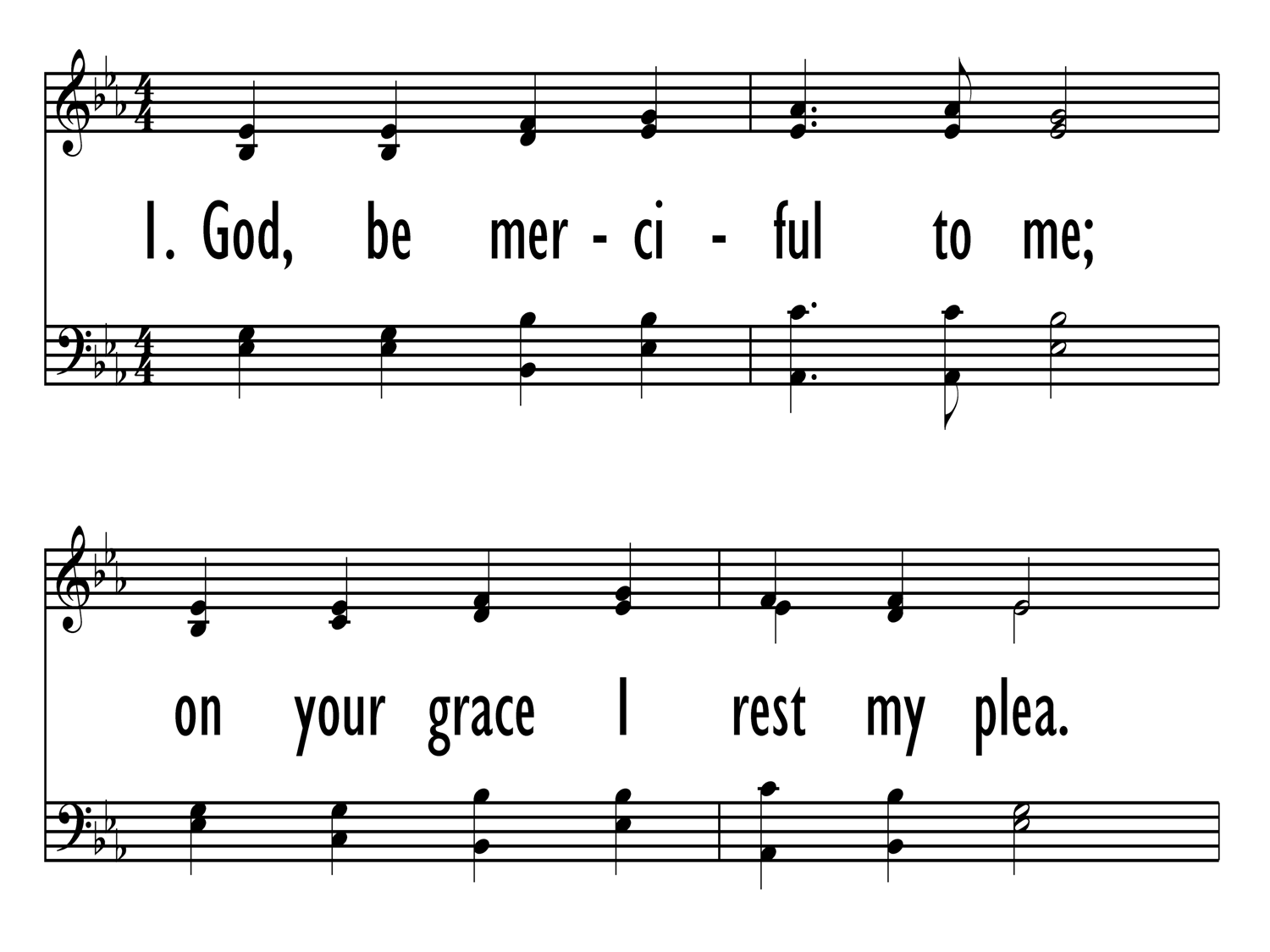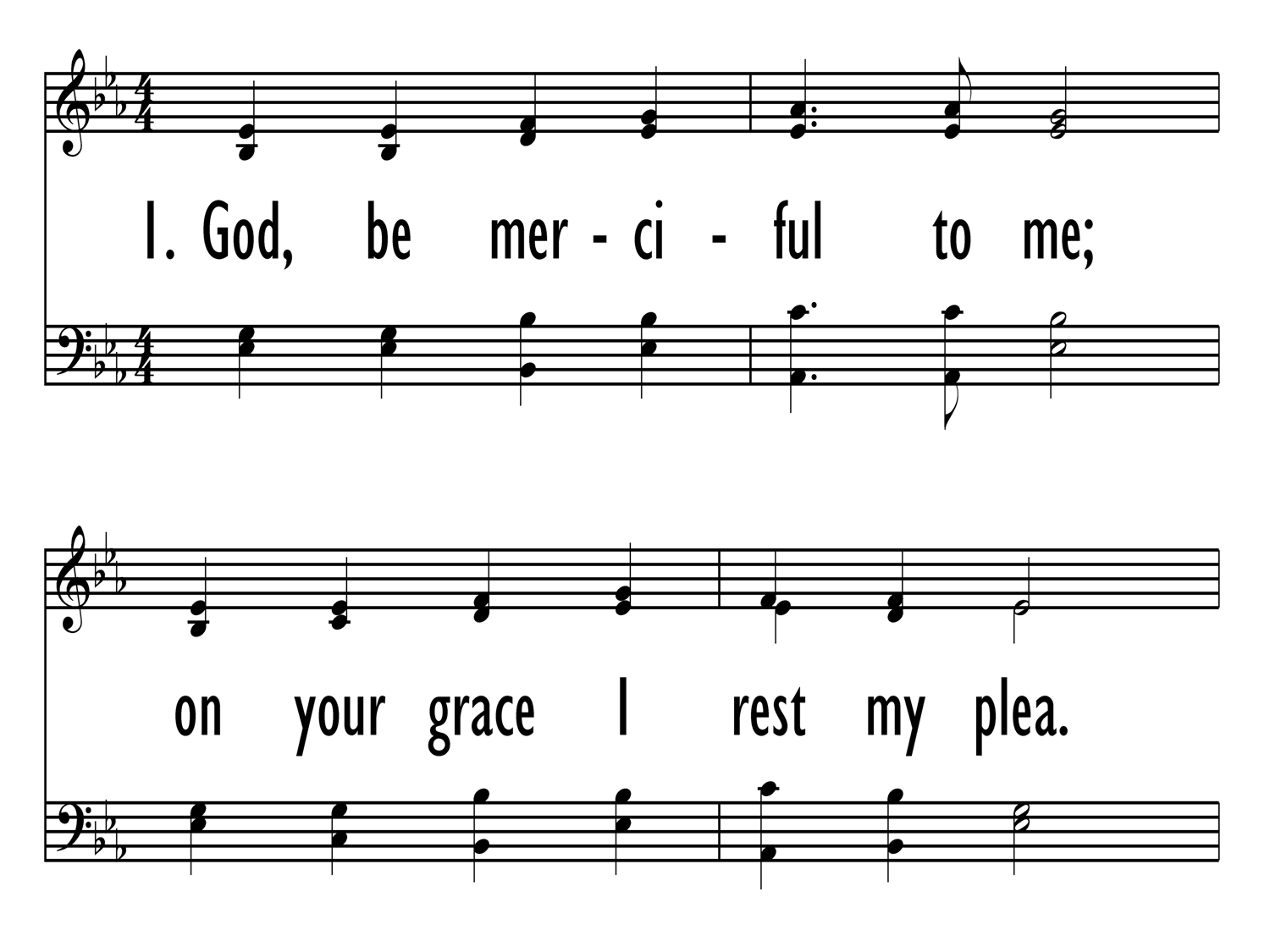- |
User Links
God, Be Merciful to Me
Hymn Information
- First Line
- God, be merciful to me
- Text Source
- <cite>Psalter</cite>, 1912, alt.
- Tune Name
- GOD, BE MERCIFUL
- Composer
- Christopher Miner
- Arranger
- Eelco Vos
- Topic
- Church Year: Ash Wednesday · God's: Mercy · Humility · Elements of Worship: Confession
Copyright Information
- Text Copyright
- Public Domain
- Tune Copyright
- music © 1998 Christopher Miner Music · arr. © 2011 Christopher Miner Music
- Reprint/Projection Information
- Words: The Words are in the Public Domain; you do not need permission to project or reprint the Words.
- Music: Permitted with a license from CCLI.com. If you do not own this license, please contact the copyright holder for permission.
Full Text
Scripture References
Confessions and Statements of Faith References
Further Reflections on Confessions and Statements of Faith References
God’s children are not called to come before God’s throne with a list of accomplishments, or merits or goodness; they are called, says Our World Belongs to God, paragraph 26, to come with the humility that “…offers nothing but our need for mercy.” Such a cry for mercy comes from our “dying-away of the old self” (Heidelberg Catechism, Lord’s Day 33, Question and Answer 88) which expresses that we are “genuinely sorry for our sin and more and more…hate and run away from it” (Heidelberg Catechism, Lord’s Day 33, Question and Answer 89).
The gifts of renewal and pardon come only “through true faith” (Heidelberg Catechism, Lord’s Day 7, Question and Answer 20) and are “gifts of sheer grace, granted solely by Christ’s merits” (Heidelberg Catechism, Lord’s Day 7, Question and Answer 21). The very act of faith is to plead for his mercy.
God, Be Merciful to Me
Confession
Additional Prayers
God, Be Merciful to Me
Tune Information
- Name
- GOD, BE MERCIFUL
- Key
- B♭ Major
- Meter
- 7.7.7.7.7.7


 My Starred Hymns
My Starred Hymns




